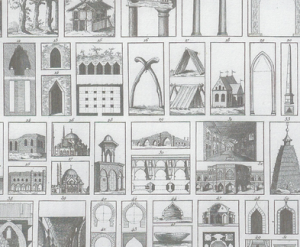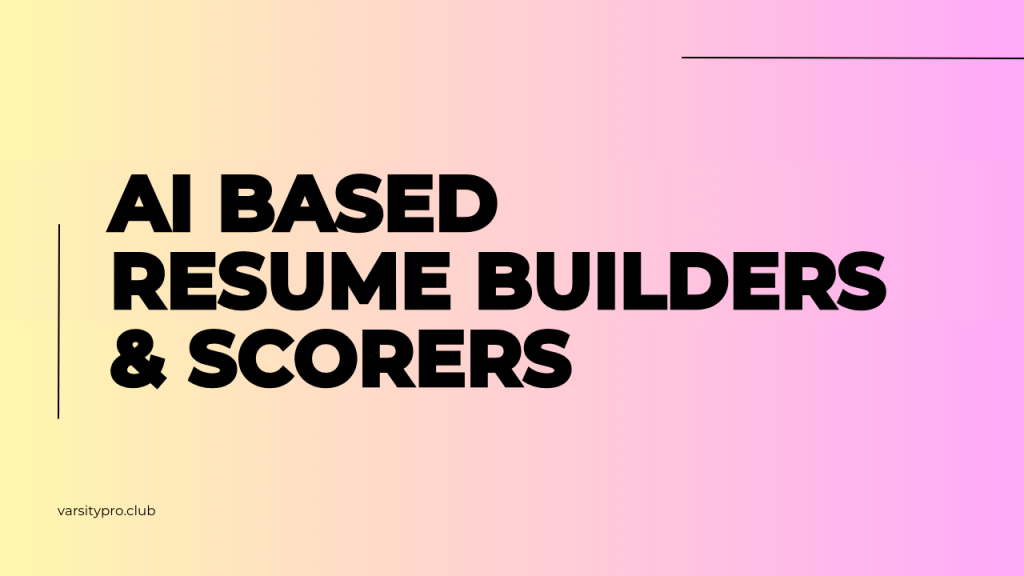A Guide to Architecture Courses After 12th in India
The architecture industry in India is poised for unprecedented growth, boasting a staggering 20% projected expansion. Are you considering a career in architecture? This guide offers essential insights on architecture courses after 12th, like top colleges, average fees, average salary to expect, various specializations in architecture, and much more! helping you navigate the path to becoming an architect in India.
What exactly is an architecture course?
These comprehensive educational programs, which range from short-term diplomas to extensive degree programs, provide you with a deep understanding of the core principles and practices in the fields of design, engineering, and construction. Throughout these programs, you will have the opportunity to explore a wide range of subjects.
Architecture courses after 12th impart essential principles like proportion and harmony for creating functional and visually balanced structures. Students explore diverse materials and construction techniques, emphasizing sustainability for responsible construction. The curriculum includes an in-depth study of architectural styles, providing a broad perspective. Proficiency in tools like CAD is cultivated for precise design visualization.

Architecture Courses after 12th
All architecture courses are in high demand and can lead to successful careers in this field. While they may vary in criteria and levels, they all work towards the same purpose. In this section, we will discuss some of the top architecture courses after 12th that students can choose from.
1. Bachelor of Architecture (B.Arch):
The Bachelor of Architecture (B.Arch) program offers a rigorous education in building design and construction. Emphasis lies on acquiring both aesthetic and technical knowledge, including:
- Structural understanding:
Principles of mechanics, material properties, and load analysis for safe and stable structures. - Building systems:
Design and integration of mechanical, electrical, plumbing, and other functional systems. - Construction methods:
Understanding various construction techniques and materials for efficient and sustainable building. - Architectural history & theory:
Exploring historical styles, movements, and design philosophies to inform contemporary practice. - Design principles:
Mastering composition, spatial organization, and form-making to create functional and aesthetically pleasing spaces. - Technical drawing & modeling:
Developing skills in drafting, 3D modeling, and design communication tools.
Eligibility: Minimum of 50% in class 12th examinations (PCM stream) and must clear an entrance exam like NATA (National Aptitude Test in Architecture) or JEE Main Paper 2.
Duration: 5 years.
Renowned Institutes: Indian Institutes of Technology (IITs) like IIT Kharagpur, the School of Planning and Architecture (SPA) in Delhi, and the Centre for Environment Planning and Technology (CEPT) University in Ahmedabad.
Fees: Government colleges charge fees from ₹1 lakh to ₹5 lakhs per year, while private colleges could cost between ₹3 lakhs and ₹10 lakhs annually. The total program fee ranges from ₹5 lakhs to ₹25 lakhs.
Also Read
2. Bachelor of Planning (B.Plan):
The Bachelor of Planning (B.Plan) program provides a professional education in the multifaceted field of urban and regional planning. It focuses on technical, analytical, and policy-oriented skills necessary to develop and manage human settlements. The curriculum typically covers:
- Spatial planning:
Analyzing land use, transportation networks, and infrastructure needs. - Environmental planning:
Addressing sustainability, conservation, and resource management. - Housing and community development:
Understanding demographics, social needs, and designing inclusive spaces. - Urban design:
Applying design principles to create functional and aesthetically pleasing environments. - Policy and regulations:
Interpreting and implementing planning regulations and legal frameworks.
Eligibility: Similar to B.Arch, you’ll need a minimum of 50% in class 12th (PCM) and a qualifying entrance exam.
Duration: Depending on the institute, a B.Plan program can last 3-4 years.
Prominent Institutes: SPA Vijayawada, IIT Roorkee, and the School of Planning and Architecture Bhopal.
Fees: Annual fees range from ₹1 lakh to ₹3 lakhs at government colleges and ₹2 lakhs to ₹5 lakhs at private colleges. The total program fee can vary from ₹3 lakhs to ₹12 lakhs.
3. Bachelor of Engineering in Construction Technology (BE in Construction Technology):
The Bachelor of Engineering in Construction Technology (BE in Construction Technology) program focuses on the technical aspects of building and infrastructure projects. It emphasizes:
- Construction materials and methods:
Deep understanding of various materials, their properties, and how they’re used in construction. - Structural engineering principles:
Applying engineering principles to analyze and design load-bearing elements like beams, columns, and slabs. - Construction management techniques:
Learning planning, scheduling, budgeting, and resource allocation for efficient project execution. - Building services and systems:
Understanding electrical, plumbing, HVAC, and other systems critical for building functionality. - Construction codes and regulations:
Adherence to safety standards and legal requirements ensuring project compliance.
Eligibility: Similar to B.Arch and B.Plan, this program requires a minimum of 50% in class 12th (PCM) and a qualifying entrance exam.
Duration: 4 years.
Esteemed Institutes: VIT Chennai, SRM University Chennai, and Manipal Institute of Technology.
Fees: Annual fees can range from ₹1 lakh to ₹4 lakhs at government colleges and ₹2 lakhs to ₹7 lakhs at private colleges. The total program fee can vary from ₹4 lakhs to ₹28 lakhs.
4. Bachelor of Architecture in Landscape Engineering (B.Arch in Landscape Engineering):
The Bachelor of Architecture in Landscape Engineering (B.Arch in Landscape Engineering) blends design principles with engineering knowledge for shaping outdoor spaces. Core areas include:
- Landscape design:
Applying artistic and ecological considerations to create functional and aesthetically pleasing landscapes. - Site planning and analysis:
Understanding topography, drainage, and soil conditions to inform design decisions. - Sustainable design practices:
Implementing solutions for rainwater harvesting, green infrastructure, and climate resilience. - Civil engineering fundamentals:
Knowledge of structural mechanics, materials, and construction methods for hardscapes and retaining walls. - Plant science and ecology:
Understanding plant selection, growth requirements, and ecosystem interactions.
Eligibility: Similar to B.Arch, the candidate must clear an entrance exam and a minimum of 50% in class 12th (PCM).
Duration: 4 years.
Prestigious Institutes: CEPT University Ahmedabad, College of Engineering Pune, etc.
Fees: Annual fees to range from ₹1 lakh to ₹3 lakhs at government colleges and ₹2 lakhs to ₹5 lakhs at private colleges. The total program fee can vary from ₹4 lakhs to ₹20 lakhs.
5. Bachelor of Architecture in Building and Construction Management:
The Bachelor of Architecture in Building and Construction Management (B.Arch in Building and Construction Management) blends architectural design knowledge with construction management expertise. Core areas include:
- Architectural design principles:
Understanding spatial planning, building systems, and aesthetics to translate concepts into plans. - Construction management techniques:
Learning project planning, scheduling, budgeting, resource allocation, and risk management. - Construction materials and methods:
Acquiring knowledge of various materials, their properties, and how they’re used in construction. - Building codes and regulations:
Understanding and adhering to safety standards and legal requirements. - Contract management and procurement:
Learning negotiation, tendering, and contractual aspects of construction projects.
Eligibility: Similar to B.Arch, this program requires a minimum of 50% in class 12th (PCM) and a qualifying entrance exam.
Duration: 4 years.
Renowned Institutes: Amity University Noida, SRM Institute of Science and Technology Chennai, and Galgotias University Greater Noida.
Fees: Expect annual fees to range from ₹2 lakhs to ₹5 lakhs at private colleges. The total program fee can vary from ₹8 lakhs to ₹20 lakhs.
6. Diploma in Architecture:
The Diploma in Architecture provides a concentrated education in the fundamentals of architectural design and drafting, ideal for those seeking a quicker entry into the building design field. Key areas include:
- Architectural drawing and sketching:
Developing skills in manual and digital drafting to visually communicate design ideas. - Building construction methods:
Understanding basic principles of material properties, structural systems, and construction techniques. - Design principles and composition:
Learning spatial organization, form-making, and aesthetic considerations in design. - Building codes and regulations:
Gaining awareness of safety standards and legal requirements for construction projects. - Architectural history and theory:
Exploring key historical styles and movements to inform contemporary design approaches.
Eligibility: Generally requires 10+2 with a minimum of 50% marks (may vary by institute).
Duration: 2-3 years.
Popular Institutes: Government Polytechnic Colleges across India, Academy of Fine Arts & Architecture Jaipur, Rachana Sansad Academy of Architecture Mumbai.
Fees: The average annual fee ranging from ₹50,000 to ₹1 lakh at government colleges and ₹1 lakh to ₹2 lakh at private colleges. The total program fee can range from ₹1 lakh to ₹3 lakh.
7. Certificate Architecture Courses in India: Exploring Specific Interests
Certificate Architecture Courses in India offer introductory-level exposure to various aspects of architecture, typically lasting several months to a year. Key elements include:
- Architectural basics:
Introduction to design principles, spatial planning, and basic drafting techniques. - Building construction fundamentals:
Overview of materials, structural systems, and construction methods. - Architectural history and styles:
Exploring key historical periods and architectural movements. - Building codes and regulations:
Awareness of basic safety standards and legal requirements. - Software basics:
Introduction to architectural design software like AutoCAD or SketchUp.
Eligibility: Varies by program, often requiring 10+2 or graduation in any discipline.
Duration: Short and focused, these courses can last from 3 months to 1 year.
Leading Institutes: CEPT University Ahmedabad, Indian Institute of Management Ahmedabad, NIIT Mumbai.
Fees: Ranging from ₹20,000 to ₹1 lakh, depending on the program and duration.
Remember, these are average figures, and fees can vary across institutes, locations, and specific programs. Always confirm directly with the institute for the latest information.
Difference Between Civil Engineering and Architecture Courses after 12th
Civil Engineering and Architecture, though interconnected, diverge in their core focus. Civil Engineering primarily deals with the structural and infrastructural aspects of construction. It encompasses the design and analysis of structures, transportation systems, and environmental engineering. Architects, on the other hand, concentrate on the aesthetic and functional aspects of building design. They integrate creativity with technical proficiency to create visually appealing and purposeful spaces. While civil engineers ensure the structural integrity and safety of a project, architects contribute to its overall design, considering user experience. Both professions collaborate closely in construction projects, combining their expertise for comprehensive and successful outcomes.
Read More
Top 10 Institutes to study Architecture courses after 12th
1. Indian Institute of Technology (IIT), Kharagpur
Eligibility Criteria: Minimum 50% marks in 10+2 with Mathematics.
Entrance Exam: No specific entrance exam; admission based on 10+2 scores.
Annual Fees: INR 2.5 lakhs
2. Sir JJ College of Architecture, Mumbai
Eligibility Criteria: Competitive admission, demanding a solid 10+2 score.
Entrance Exam: No specific entrance exam; admission based on 10+2 scores.
Annual Fees: INR 80,000
3. School of Planning and Architecture (SPA), New Delhi
Eligibility Criteria: 10+2 with 50% marks in Physics, Chemistry, and Mathematics.
Entrance Exam: No specific entrance exam; admission is based on 10+2 scores.
Annual Fees: INR 71,500
4. Chandigarh College of Architecture
Eligibility Criteria: Minimum 10+2 score.
Entrance Exam: No specific entrance exam; admission is based on 10+2 scores.
Annual Fees: INR 90,000
5. National Institute of Technology (NIT), Calicut
Eligibility Criteria: 10+2 with Mathematics and a valid NATA score.
Entrance Exam: Admission based on NATA scores.
Annual Fees: INR 1.2 lakhs
6. Birla Institute of Technology, Mesra
Eligibility Criteria: Admission based on NATA scores.
Entrance Exam: No specific entrance exam; admission is based on NATA scores.
Annual Fees: INR 2 lakhs
7. Department of Architecture, IIT Roorkee
Eligibility Criteria: 10+2 with 50% marks and Mathematics.
Entrance Exam: No specific entrance exam; admission based on 10+2 scores.
Annual Fees: INR 2.5 lakhs
8. Manipal School of Architecture and Planning
Eligibility Criteria: 10+2 with Mathematics.
Entrance Exam: No specific entrance exam; admission based on 10+2 scores.
Annual Fees: INR 1.5 lakhs
9. Faculty of Architecture, Manipal Academy of Higher Education (MAHE), Manipal
Eligibility Criteria: 10+2 with Mathematics.
Entrance Exam: No specific entrance exam; admission based on 10+2 scores.
Annual Fees: INR 1.5 lakhs
10. Department of Architecture, National Institute of Technology (NIT), Tiruchirappalli
Eligibility Criteria: 10+2 with Mathematics and a valid NATA score.
Entrance Exam: Admission based on NATA scores.
Annual Fees: INR 1.2 lakhs
Government Colleges
1. School of Planning and Architecture (SPA), Bhopal
2. Department of Architecture, Malaviya National Institute of Technology (MNIT), Jaipur
3. Rachana Sansad Academy of Architecture, Mumbai
4. Department of Architecture, NIT Hamirpur
5. Faculty of Architecture, CEPT University, Ahmedabad
B. Arch Colleges in India
1. SRM University, Chennai
Eligibility: A minimum aggregate of 60% in 10+2 with Physics, Chemistry, and Mathematics.
Entrance Exam: SRMJEEE (SRM Joint Entrance Examination).
2. IIEST Shibpur – Indian Institute of Engineering Science and Technology
Eligibility: Minimum 75% aggregate in 10+2 with Physics, Chemistry, and Mathematics.
Entrance Exam: JEE Advanced.
3. College of Engineering, Trivandrum
Eligibility: 10+2 with a minimum of 75% in Mathematics separately and 50% aggregate.
Entrance Exam: KEAM (Kerala Engineering Architecture Medical).
4. Jadavpur University, Kolkata
Eligibility: Minimum 60% in 10+2 with Physics, Chemistry, and Mathematics.
Entrance Exam: WBJEE (West Bengal Joint Entrance Examination).
5. VIT Vellore – Vellore Institute of Technology
Eligibility: Aggregate of 60% in Physics, Chemistry, and Mathematics/Biology in 10+2.
Entrance Exam: VITEEE (VIT Engineering Entrance Examination).
6. Sathyabama University – Sathyabama Institute of Science and Technology
Eligibility: Minimum 60% in 10+2 with Physics, Chemistry, and Mathematics.
7. MSRIT Bangalore – Ramaiah Institute of Technology
Eligibility: 45% in 10+2 with Physics, Mathematics, and Chemistry/Biology.
Entrance Exam: COMEDK (Consortium of Medical, Engineering, and Dental Colleges of Karnataka).
8. REVA University, Bangalore
Eligibility: Minimum 45% in 10+2 with Physics, Mathematics, and Chemistry/Biology.
Entrance Exam: REVA EET (REVA University Engineering Entrance Test).
9. Andhra University – College of Engineering, Visakhapatnam
Eligibility: 10+2 with a minimum of 50% in Physics, Chemistry, and Mathematics.
Entrance Exam: AP EAMCET (Andhra Pradesh Engineering, Agriculture, and Medical Common Entrance Test).
10. Dayananda Sagar College of Engineering
Eligibility: Minimum 45% in 10+2 with Physics, Mathematics, and Chemistry/Biology.
Entrance Exam: COMEDK (Consortium of Medical, Engineering, and Dental Colleges of Karnataka).
Entrance Exams for Architecture Courses after 12th in India
1. National Aptitude Test in Architecture (NATA):
- Eligibility: Anyone seeking admission to B.Arch programs across India can take NATA.
- Format: NATA is a two-part test. Part A assesses your drawing and observation skills with pen-and-paper exercises, while Part B evaluates your critical thinking and architectural aptitude through multiple-choice questions.
- Frequency: Twice a year (April and December).
- Preparation Tips: Sharpen your sketching skills. Practice past papers religiously, and understand various architectural concepts to ace Part B.
- Application Process: Applications typically open in February and August for the respective exams. Visit the official NATA website (https://www.nata.in/) for updates.
2. JEE Main Paper 2: AAT (Architecture Aptitude Test):
- Eligibility: Once you clear JEE Main Paper 1 and are eligible for JEE Advanced, you are eligible for AAT.
- Format: AAT is a three-hour paper testing your drawing, understanding of structures and materials, and architectural awareness.
- Frequency: Once a year in April, aligning with the JEE Main schedule.
- Preparation Tips: JEE Main Paper 1 forms the foundation. Focus on technical drawing and visualization, and supplement it with a dedicated study of architectural principles.
- Application Process: The JEE Main application process covers AAT registration. Visit the official JEE website (https://jeemain.nta.nic.in/) for latest updates and deadlines.
3. Architecture Aptitude Test (AAT) by Individual Universities:
- Eligibility: Eligibility varies depending on the university conducting the exam.
- Format: The format varies significantly across universities.
- Frequency: Dates and schedules differ by university.
- Preparation Tips: Research the specific format and syllabus of the AAT you’re aiming for. Utilize past papers and mock tests offered by the respective universities.
- Application Process: Contact the chosen university directly for application details and deadlines.
Find Jobs at varsitypro.club
Specializations post Architecture Courses After 12th
Presently, the field of architecture offers a multitude of career prospects. Being an architect doesn’t solely entail drafting drawings for bridges and dams; the profession encompasses various layers of expertise. This section aims to explore the career options available to students pursuing architecture courses after 12th grade.
1. Landscape Architects:
In the field of landscape architecture, professionals are tasked with the creation of aesthetically pleasing and sustainable urban spaces. The responsibilities involve transforming urban areas into green havens, and integrating nature with design. The average annual salary for landscape architects ranges from ₹4-8 lakhs, with experienced individuals earning above ₹15 lakhs. Future opportunities lie in specialization areas such as ecological design or sustainable infrastructure to advance one’s career.

2. Industrial Architects:
Industrial architects play a pivotal role in designing and managing the construction of industrial facilities. This includes factories, warehouses, and power plants, ensuring efficiency, safety, and sustainability. The average annual salary for industrial architects falls within the ₹5-10 lakhs range, with senior positions exceeding ₹15 lakhs. The evolving industrial sector offers potential for specialization, particularly in areas like automation and green technology.

3. Architectural Historians:
Architectural historians delve into the historical aspects of buildings, researching, documenting, and analyzing the built environment. Responsibilities include advocating for conservation, restoration, and appreciation of heritage structures. Salaries typically range from ₹4-8 lakhs, with academics and researchers earning more. Specializing in specific architectural periods or regions is recommended to make a significant impact as urbanization intensifies.
 4. Architectural Technicians:
4. Architectural Technicians:
Architectural technicians work closely with architects, translating design concepts into detailed drawings and specifications. Their meticulous work ensures that structures align with the established plans. The average annual salary for architectural technicians ranges from ₹3-6 lakhs, with experienced professionals earning over ₹8 lakhs. Technological advancements have increased the demand for technicians proficient in software and building practices, particularly those specializing in BIM (Building Information Modeling).

5. Interior and Spatial Designers:
Interior and spatial designers focus on crafting functional and aesthetically pleasing interiors for various settings. This includes homes, offices, and commercial spaces, considering factors like ergonomics and user experience. The average annual salary for interior and spatial designers is in the ₹4-8 lakhs range, with established designers earning ₹10 lakhs or more. Specializing in sustainability, healthcare, or hospitality offers niche opportunities in this dynamic field.

6. Building Surveyors:
Building surveyors play a vital role in assessing the condition of existing structures, ensuring compliance with building codes, and advising on repairs or renovations. The average annual salary for building surveyors ranges from ₹5-8 lakhs, with experienced professionals earning over ₹12 lakhs. Specializing in green building practices or energy efficiency enhances future career prospects as building regulations evolve.

7. Town Planners:
Town planners collaborate with communities, architects, and engineers to design sustainable and livable urban spaces. Their responsibilities include planning and managing the development of towns and cities. The average annual salary for town planners falls within the ₹6-10 lakhs range, with senior planners earning upwards of ₹15 lakhs. Specializing in areas like urban design, transportation planning, or disaster management is recommended for a thriving career in light of rapid urbanization.
Conclusion
India’s rapid urbanization, coupled with an increasing focus on infrastructure development, translates to a growing demand for skilled architects. By 2030, the industry is expected to create over 2 million jobs, offering exciting opportunities for those who are prepared.
As your skills flourish and experience deepens, so will your financial rewards. The average architect’s salary in India can range from ₹5-10 lakhs per year, with senior architects and specialists commanding significantly higher figures. Consider the potential for independent practice, consultancy roles, or leadership positions in architecture firms for even greater earning potential.
Start your journey now – www.varsitypro.club
Frequently Asked Questions:






